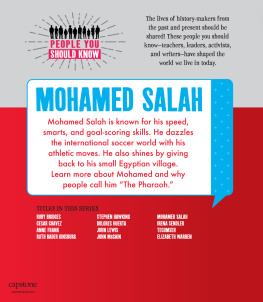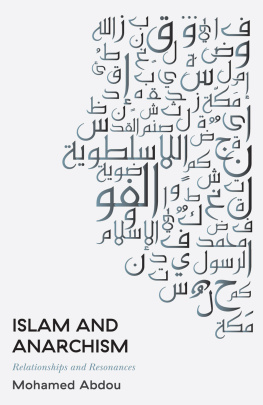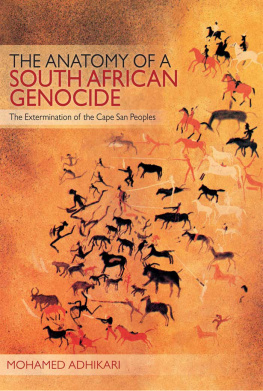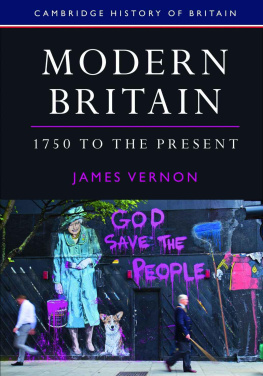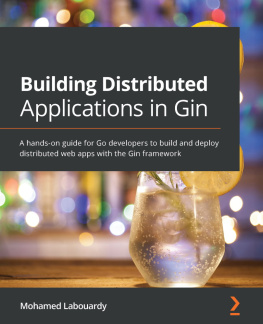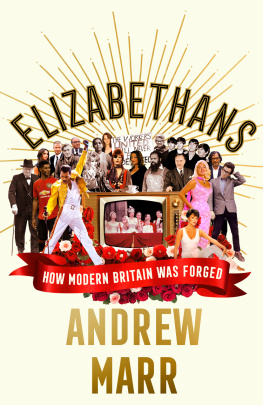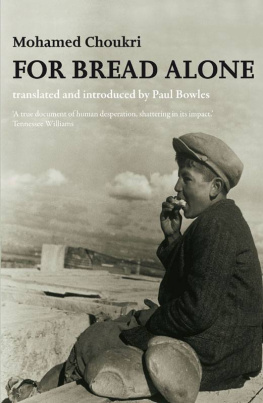Hashi Mohamed - People Like Us: What it Takes to Make it in Modern Britain
Here you can read online Hashi Mohamed - People Like Us: What it Takes to Make it in Modern Britain full text of the book (entire story) in english for free. Download pdf and epub, get meaning, cover and reviews about this ebook. year: 2019, publisher: Profile, genre: Home and family. Description of the work, (preface) as well as reviews are available. Best literature library LitArk.com created for fans of good reading and offers a wide selection of genres:
Romance novel
Science fiction
Adventure
Detective
Science
History
Home and family
Prose
Art
Politics
Computer
Non-fiction
Religion
Business
Children
Humor
Choose a favorite category and find really read worthwhile books. Enjoy immersion in the world of imagination, feel the emotions of the characters or learn something new for yourself, make an fascinating discovery.

- Book:People Like Us: What it Takes to Make it in Modern Britain
- Author:
- Publisher:Profile
- Genre:
- Year:2019
- Rating:5 / 5
- Favourites:Add to favourites
- Your mark:
- 100
- 1
- 2
- 3
- 4
- 5
People Like Us: What it Takes to Make it in Modern Britain: summary, description and annotation
We offer to read an annotation, description, summary or preface (depends on what the author of the book "People Like Us: What it Takes to Make it in Modern Britain" wrote himself). If you haven't found the necessary information about the book — write in the comments, we will try to find it.
Hashi Mohamed: author's other books
Who wrote People Like Us: What it Takes to Make it in Modern Britain? Find out the surname, the name of the author of the book and a list of all author's works by series.
People Like Us: What it Takes to Make it in Modern Britain — read online for free the complete book (whole text) full work
Below is the text of the book, divided by pages. System saving the place of the last page read, allows you to conveniently read the book "People Like Us: What it Takes to Make it in Modern Britain" online for free, without having to search again every time where you left off. Put a bookmark, and you can go to the page where you finished reading at any time.
Font size:
Interval:
Bookmark:
People Like Us
What it Takes to Make it in Modern Britain
Hashi Mohamed

First published in Great Britain in 2020 by
Profile Books Ltd
29 Cloth Fair
London
EC1A 7JQ
www.profilebooks.com
Copyright Hashi Mohamed, 2020
The author and publisher assume no responsibility for the content of websites that are not the publishers own. While care has been taken to ensure that the web links in the Notes section of this book are accurate at the time of publication, the publisher cannot guarantee that these links remain viable.
The moral right of the author has been asserted.
Cover Design: Steve Leard
All rights reserved. Without limiting the rights under copyright reserved above, no part of this publication may be reproduced, stored or introduced into a retrieval system, or transmitted, in any form or by any means (electronic, mechanical, photocopying, recording or otherwise), without the prior written permission of both the copyright owner and the publisher of this book.
A CIP catalogue record for this book is available from the British Library.
ISBN 9781788161121
eISBN 9781788161114
To my late father, who never saw the man I became.
And to his mother, who did so much to make me the man I am.
Say not, I have found the truth, but rather, I have found a truth.
Kahlil Gibran, The Prophet
I had to learn the hardest way. But it didnt have to be like that.
Thats what this book is about.
It is a book that seeks to understand why what I went through on my own journey from poverty to privilege was necessary. It is a form of therapy, but, more importantly, I hope it is a way for me to pass on what I have learned along the way. It contains a world about which most people know very little; but for many people like me the reality of it was and still remains remarkably unremarkable.
My name is Hashi Mohamed Hashi. I was born in Kenya to Somali parents and my name follows the tradition of Somali names in which, instead of having surnames, you list a series of forenames that trace your lineage back to your clan forefathers: Hashi was my grandfathers name, which is why it appears twice. I come from a nomadic, oral tradition, in which historical records were preserved through poetry and in the memory of generations instead of on parchments and vellum: relatives often claim to meet you at your seventh or eighth listed name, tracing back many generations. My father had little formal education and left his family to seek his fortunes in Kenya in the late 1970s. A few years later, he met my mother, a divorcee with six children from her previous marriage, who had come to Kenya alone in 1980 to seek a new beginning. She was never formally educated and has never learned how to read and write. She and my father had another six children, five of whom survived and of whom I am the second. There has never been a point at which all of my siblings have lived in the same place at the same time. Again, for many people like me this is quite normal.
Thirteen years after my parents met, the Somali state collapsed following a brutal civil war. The whole of my family still remaining in Somalia was uprooted and rendered stateless in Kenya. At the same time, my father died in a car crash in Kenya, and I ended up in North West London with some of my siblings. Our mother had stayed behind.
I was nine years old.
Today, twenty-five years later, I am a barrister and broadcaster and now, as you read these words, I am an author, too. This was, frankly, a very unlikely outcome. I grew up in some of the most deprived areas of London, attended failing schools (when I bothered to turn up at all) and was raised exclusively on state benefits. With the benefit of full scholarships, I went on to study law and French at the University of Hertfordshire, do a postgraduate degree at St Antonys College, Oxford, and soon after took a Bar School vocational qualification from City Law School. At twenty-seven, I became a member of the Bar of England and Wales, and a lifetime member of The Honourable Society of Lincolns Inn one of the four Inns of Court, established in 1422, to which barristers belong. I practise out of N05 Chambers, the largest set of chambers in the country, specialising in planning and environment law, and commercial litigation.
I say all this not to boast, but because mine has been the unlikeliest of journeys; and even from the inside it is hard to understand what shaped and powered it. The trajectory for most of my siblings and family has been very different, and yet I have had no discernible advantage over any of them. I am left to wonder why me?
It was partly in search of answers that, in April 2017, I made a radio documentary for BBC Radio 4 entitled Adventures in Social Mobility. The documentary charted my journey from arriving in the UK as a young unaccompanied child refugee, to becoming a barrister practising in England and Wales. Though the programme was short, the issues I touched upon, the lessons I picked up along the way, the people I met and the challenges I had overcome seemed to strike a chord with many people. Parents wrote to tell me how encouraging my broadcast was to them as they worked out how best to raise their sons. Teachers confided to me that they had been unsure about whether they were doing the right thing, unsure about their efforts and how much of an impact they were making. It was reassuring to know that they found something to take away from the story that I told. Men shared with me intimate details about what it meant for them to have grown up without a father. At one point, not knowing who I was, someone at a party recommended an incredible podcast about social mobility to me. I was inundated with messages and invitations to discuss the issues at schools, at community centres and at various institutions. It was both humbling and daunting when people spoke to me as though I could explain how to navigate journeys that many before me had struggled to complete, as if I had the map to the Promised Land.
Just after the documentary aired, Private Eye ran a cartoon depicting two men in a pub. One is an older gentleman with silver hair, formally dressed, nursing what looks like a gin and tonic. He offers: Yes, I was listening to a documentary about social mobility on Radio 4. The response from his younger, shaven-headed companion, who is casually dressed, has a beer in front of him and a bemused look on his face, is: Whats Radio 4? I realised that, if I really wanted to make a difference, I should find a way to bring this story to a much wider audience. What the cartoon pointed out was that the people who were most affected by the lack of social mobility in Britain, despite the number who had been in touch with me, were not necessarily the ones I was reaching. To put it bluntly, the demographic that listens to Radio 4 documentaries about inequality are perhaps the least affected by it. But it also touched on an essential truth about social mobility: that is, what one group considers essentially familiar, part of the furniture of everyday life, can to someone else be entirely foreign. We just dont know what we dont know about how others live in our own country.
My story is also, like all life stories, unique. It is not a template or a blueprint. With such specific and individual twists and turns, how could it be? Instead, by exploring my own journey so far, I hope to answer a simple but important question: what does it take for you to do better in life and improve on what was accomplished by those who came before you? As you read this book, I hope that your starting point is not as difficult or as marked with grief and struggle as my own; but I hope that youre able to connect with some of what I describe in these pages. I recognise the need to tell this story to young people: never underestimate the power of seeing someone who looks like you someone with whom you share a similar background, someone whose struggles you may relate to occupying a place where you hope to be one day. Perhaps most importantly, I recognise that very few people are in a position to tell this story as I can. And unless you have been there, experienced the difficulties and struggle and disillusionment of a journey from the bottom to the top, what can you really say about the matter?
Next pageFont size:
Interval:
Bookmark:
Similar books «People Like Us: What it Takes to Make it in Modern Britain»
Look at similar books to People Like Us: What it Takes to Make it in Modern Britain. We have selected literature similar in name and meaning in the hope of providing readers with more options to find new, interesting, not yet read works.
Discussion, reviews of the book People Like Us: What it Takes to Make it in Modern Britain and just readers' own opinions. Leave your comments, write what you think about the work, its meaning or the main characters. Specify what exactly you liked and what you didn't like, and why you think so.

